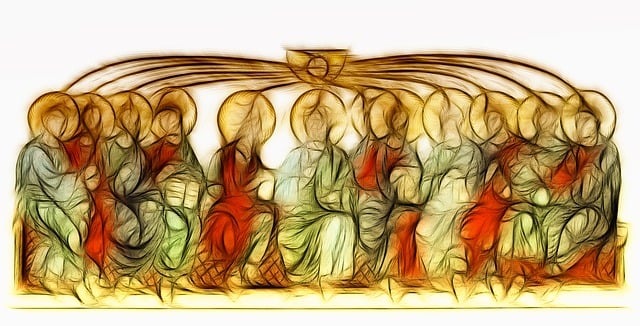Pentecostalism is a branch of Christianity that emerged in the early 20th century. It places a strong emphasis on the Holy Spirit and the belief in spiritual gifts, such as speaking in tongues and divine healing. However, the question of whether Pentecostals are true Christians is subjective and depends on individual perspectives and interpretations of Christian doctrine.
Table of Contents
The Beliefs and Practices of Pentecostals
Pentecostals are a group of Christians who believe in the power of the Holy Spirit and the gifts of the Spirit. They are known for their lively worship services, speaking in tongues, and emphasis on spiritual experiences. In this article, we will explore the beliefs and practices of Pentecostals and discuss whether they can be considered true Christians.
One of the core beliefs of Pentecostals is the baptism of the Holy Spirit. They believe that after accepting Jesus as their Savior, believers can receive a second experience called the baptism of the Holy Spirit. This experience is often accompanied by speaking in tongues, which is seen as a sign of the presence of the Holy Spirit. Pentecostals believe that this baptism empowers them to live a holy and victorious life.
Another important aspect of Pentecostalism is the belief in divine healing. Pentecostals believe that God can heal physical, emotional, and spiritual ailments through prayer and the laying on of hands. They often pray for the sick during their worship services and believe that God still performs miracles today. This emphasis on healing is rooted in the belief that Jesus Christ is the same yesterday, today, and forever.
Pentecostals also place a strong emphasis on spiritual gifts. They believe that the Holy Spirit gives gifts to believers for the edification of the church and the spreading of the gospel. These gifts can include speaking in tongues, prophecy, healing, and others. Pentecostals believe that these gifts are available to all believers and should be actively sought after and used in their daily lives.
In addition to their beliefs, Pentecostals have distinct practices that set them apart from other Christian denominations. One of these practices is their style of worship. Pentecostal worship services are often characterized by energetic singing, clapping, and dancing. They believe in expressing their love and devotion to God through physical actions and heartfelt praise.
Another practice commonly seen in Pentecostal churches is the laying on of hands. This practice is used for various purposes, including praying for healing, imparting spiritual gifts, and blessing individuals. Pentecostals believe that the laying on of hands is a way to transfer the power of the Holy Spirit and bring about spiritual transformation.
Now, the question remains: are Pentecostals true Christians? The answer to this question depends on one’s definition of a true Christian. If being a true Christian means accepting Jesus Christ as Lord and Savior and striving to live a life that is pleasing to God, then Pentecostals certainly fit the bill. They believe in the foundational teachings of Christianity and seek to follow Jesus in their daily lives.
While Pentecostals may have unique beliefs and practices, they are still part of the larger body of Christ. They share a common faith in Jesus Christ and a desire to spread the gospel to the ends of the earth. It is important to remember that Christianity is a diverse religion with various denominations, each with its own distinct beliefs and practices.
In conclusion, Pentecostals are true Christians who hold to the core teachings of Christianity while emphasizing the power of the Holy Spirit, divine healing, and spiritual gifts. Their beliefs and practices may differ from other Christian denominations, but they are united in their faith in Jesus Christ. Whether one agrees with their beliefs or not, it is important to respect and appreciate the diversity within the body of Christ.
Understanding the Role of the Holy Spirit in Pentecostalism

Are Pentecostals true Christians? This is a question that often arises when discussing the beliefs and practices of Pentecostalism. To understand the role of the Holy Spirit in Pentecostalism, it is important to delve into the core beliefs and values of this Christian denomination.
Pentecostalism is a branch of Christianity that places a strong emphasis on the work of the Holy Spirit. Pentecostals believe that the Holy Spirit is not just a distant and abstract concept, but a living and active presence in their lives. They believe that the Holy Spirit empowers them to live a life that is pleasing to God and enables them to carry out the work of the ministry.
One of the key aspects of Pentecostalism is the belief in the baptism of the Holy Spirit. Pentecostals believe that this experience is separate from the initial conversion to Christianity and is marked by the evidence of speaking in tongues. They believe that this baptism empowers them to live a life of holiness and to be effective witnesses for Christ.
The role of the Holy Spirit in Pentecostalism is not limited to personal empowerment. Pentecostals also believe in the gifts of the Spirit, which are supernatural abilities given by the Holy Spirit for the edification of the church. These gifts include prophecy, healing, and speaking in tongues. Pentecostals believe that these gifts are still active and relevant in the present day and should be sought after and used in the context of worship and ministry.
The emphasis on the Holy Spirit in Pentecostalism can sometimes lead to misunderstandings and misconceptions. Some people may question whether Pentecostals are true Christians because of their unique beliefs and practices. However, it is important to remember that the core beliefs of Christianity, such as the belief in Jesus Christ as Lord and Savior, are shared by Pentecostals.
Pentecostals may have a different emphasis and expression of their faith, but at the heart of it all is a genuine love for Jesus and a desire to follow Him. They believe that the Holy Spirit is an essential part of the Christian life and seek to cultivate a personal relationship with Him.
It is also worth noting that Pentecostalism is not a monolithic movement. There are different denominations and groups within Pentecostalism, each with their own unique beliefs and practices. While there may be variations in how the Holy Spirit is understood and experienced, the central focus remains on the work of the Spirit in the life of the believer.
In conclusion, Pentecostals are indeed true Christians. Their emphasis on the role of the Holy Spirit sets them apart from other Christian denominations, but it does not diminish their faith in Jesus Christ as Lord and Savior. Pentecostals believe that the Holy Spirit empowers them to live a life that is pleasing to God and enables them to carry out the work of the ministry. While there may be differences in beliefs and practices within Pentecostalism, the core tenets of Christianity remain the same. So, let us embrace the diversity within the body of Christ and recognize that Pentecostals are indeed true Christians.
Examining the Relationship Between Pentecostalism and Christianity
Are Pentecostals true Christians? This is a question that has been debated among believers for many years. Pentecostalism is a branch of Christianity that places a strong emphasis on the Holy Spirit and the gifts of the Spirit, such as speaking in tongues and divine healing. Some Christians view Pentecostals as true followers of Christ, while others question the validity of their beliefs and practices. In this article, we will examine the relationship between Pentecostalism and Christianity to shed some light on this controversial topic.
First and foremost, it is important to understand that Pentecostalism is a movement within Christianity. It is not a separate religion or a cult. Pentecostals believe in the same core doctrines as other Christians, such as the Trinity, the divinity of Jesus Christ, and salvation through faith in Him. They accept the Bible as the inspired Word of God and seek to live according to its teachings. In this sense, Pentecostals can be considered true Christians.
However, what sets Pentecostals apart from other Christians is their emphasis on the Holy Spirit and the gifts of the Spirit. Pentecostals believe that the Holy Spirit is actively at work in the world today, empowering believers to live a victorious Christian life and to minister to others. They believe that the gifts of the Spirit, such as speaking in tongues, prophecy, and healing, are available to all believers and should be sought after and practiced. This emphasis on the supernatural aspects of Christianity can sometimes be seen as controversial or even heretical by other Christians.
It is important to note that not all Christians agree with the Pentecostal view of the Holy Spirit and the gifts. Some Christians believe that these gifts ceased after the time of the apostles and are no longer necessary or relevant for today’s believers. Others believe that the gifts are still available but should be exercised with caution and in accordance with biblical guidelines. These differences in belief and practice can lead to misunderstandings and divisions within the body of Christ.
Despite these differences, it is crucial to remember that the essence of Christianity lies in a personal relationship with Jesus Christ. True Christians are those who have accepted Jesus as their Lord and Savior and strive to follow Him in their daily lives. While beliefs and practices may vary among different denominations and movements, the central focus should always be on Jesus and His teachings.
In conclusion, Pentecostals can be considered true Christians because they adhere to the core doctrines of Christianity and seek to live according to the teachings of Jesus. Their emphasis on the Holy Spirit and the gifts of the Spirit sets them apart from other Christians and can sometimes be a point of contention. However, it is important to remember that the essence of Christianity lies in a personal relationship with Jesus Christ, and true believers can be found in all denominations and movements. Instead of focusing on our differences, let us strive to love and support one another as we seek to follow Christ together.
Addressing Common Misconceptions About Pentecostals and their Faith
Are Pentecostals true Christians? This is a question that often arises when discussing the beliefs and practices of Pentecostalism. In this article, we will address some common misconceptions about Pentecostals and their faith, and hopefully shed some light on this topic.
First and foremost, it is important to understand that Pentecostalism is a branch of Christianity. Pentecostals believe in Jesus Christ as their Lord and Savior, and they strive to live their lives according to the teachings of the Bible. Like other Christians, they believe in the Holy Trinity – God the Father, God the Son (Jesus Christ), and God the Holy Spirit.
One misconception about Pentecostals is that they are not “real” Christians because of their emphasis on spiritual gifts and the practice of speaking in tongues. While it is true that Pentecostals place a strong emphasis on the Holy Spirit and believe in the manifestation of spiritual gifts, this does not make them any less Christian. In fact, the belief in the Holy Spirit and the practice of speaking in tongues can be traced back to the early Christian church as described in the book of Acts.
Another misconception is that Pentecostals are overly emotional or “fanatical” in their worship. While it is true that Pentecostal worship services can be lively and filled with expressions of joy and enthusiasm, this does not mean that Pentecostals are any less sincere or genuine in their faith. The emotional aspect of their worship is simply a reflection of their deep love and devotion to God.
It is also important to note that Pentecostals are not a monolithic group. There are many different denominations and churches within the Pentecostal movement, each with its own unique beliefs and practices. Some Pentecostal churches may place a greater emphasis on certain aspects of their faith, such as healing or prophecy, while others may have a more balanced approach. It is unfair to make sweeping generalizations about all Pentecostals based on the practices of a few.
Furthermore, Pentecostals are not exclusive or closed off from other Christians. They believe in the unity of all believers and often participate in interdenominational events and activities. Many Pentecostals also actively engage in community service and outreach, seeking to share the love of Christ with others.
In conclusion, Pentecostals are indeed true Christians. They believe in Jesus Christ as their Savior and strive to live according to the teachings of the Bible. While they may have unique beliefs and practices, such as the emphasis on spiritual gifts and the practice of speaking in tongues, these do not make them any less Christian. It is important to approach the topic of Pentecostalism with an open mind and a willingness to learn and understand their beliefs and practices.
Conclusion
In conclusion, Pentecostals are considered to be true Christians by their own beliefs and practices. However, the question of whether someone is a true Christian is subjective and can vary depending on individual perspectives and interpretations of Christianity.
For licensing reasons, we must provide the following notice: This content was created in part with the help of an AI.


